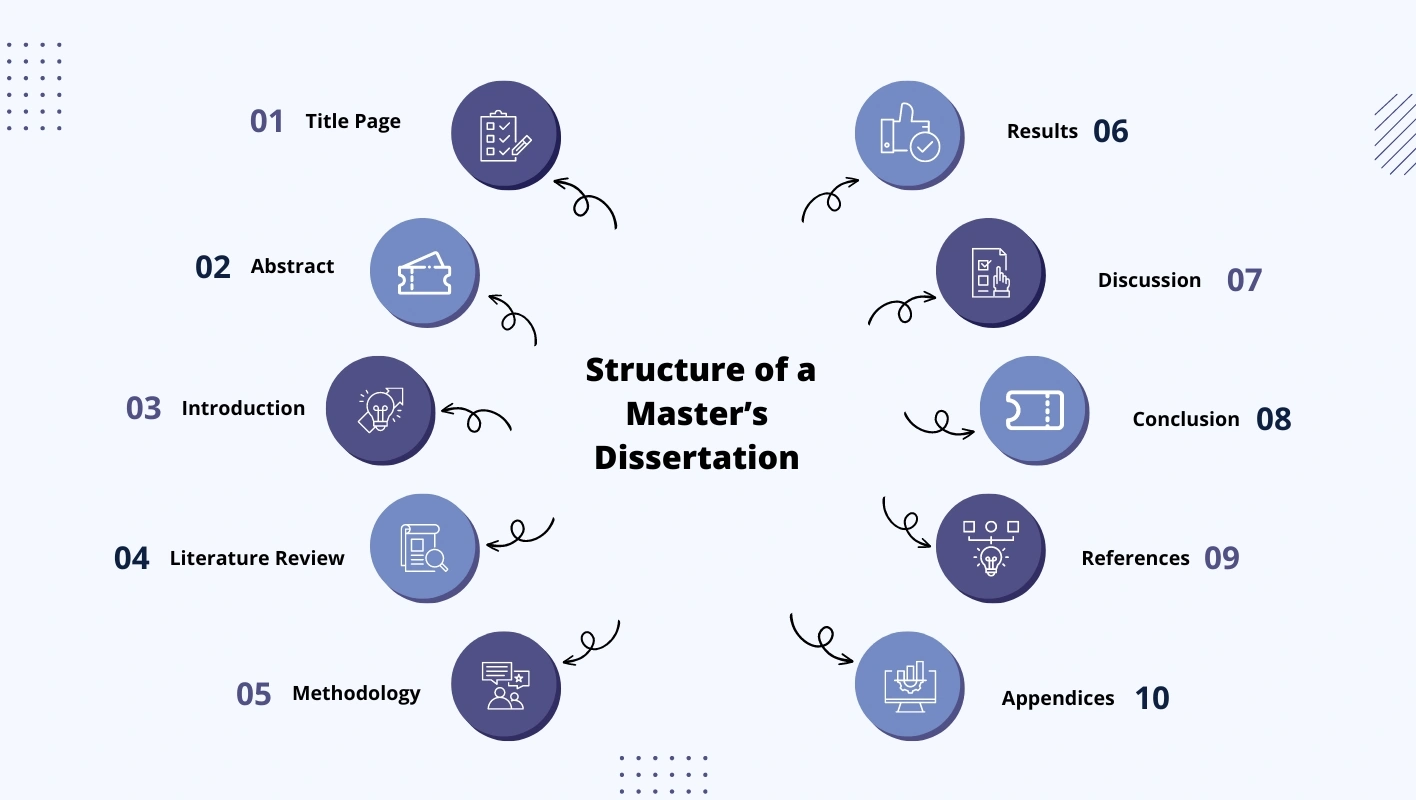
Understanding important academic documents which you are going to generate is one of the key aspects of managing postgraduate education. The two academic writing genres are research proposal and master’s dissertation.
They are correlated but they function differently and are organized in different ways. In this blog post we will discuss the distinctions between a research proposal and a masters dissertation based on their objectives and organization with reference to UK academic resources.
A research proposal refers to a written document that outlines the research study to be conducted. The main goals of a research proposal include:
This should state and explain the research question or hypothesis you intend to investigate whether in the form of a question or a statement. This is important because a well-formulated question sets a tone for the rest of your investigation. University of Portsmouth research showed that nearly 65% of research proposals get rejected due to absence or improper formulation of research questions or due to insufficient presentation of the problem.
The proposal should demonstrate that your study is necessary and valuable. This involves an identification of the research gaps from the previously published literature that your research seeks to address. Research from the University of Manchester suggests that proposals with convincing arguments for their research stand a 40% chance of being funded.
You must describe how exactly you are going to proceed with your study, how you are going to gather data and how you will process it. This section is important in proving that your research is practical and that you have a roadmap on how to get it done. Good methodology planning improves your proposal approval probability by 30%.
The final objective of a research proposal is to obtain permission to proceed with your work from your academic advisor or a committee. This approval is necessary to proceed with your research and ensures that your study complies with established scholarly practices. Data from the University of Edinburgh estimates that 85% of well-prepared proposals receive the approval to proceed to the dissertation phase.
While the research proposal is designed to outline plans and to seek permission, the master's level dissertation is concerned with presenting the findings of your research and advancing knowledge in the specialisation area. The dissertation is a detailed document that reflects months of research, and its objectives include:
The dissertation must provide an account of the research process of data collection and analysis of data. These discoveries are important and comprehensible, and they serve as the main basis for your dissertation. Studies conducted at Newcastle University indicate that about 80% of dissertations are evaluated on the quality and presentation of the findings.
Unlike other academic works where data is just presented, the dissertation demands that the results are analyzed. This includes a review of literature to show how your results relate to previous findings and how they advance the given field of study. Most programs include critical analysis as a part of the dissertation assessment, which can contribute up to 60% of the aggregate score.
While the research proposal is concerned with planning, the dissertation is intended to advance knowledge. It should contain unique ideas or research results that would help in a better comprehension of the issue. Completion of dissertations is usually followed by publications or provides an opportunity for continued research, underlining the importance of these projects in the academic environment.
Commonly, a research proposal is organized logically to include all the details about the proposed research. While writing the research proposal, the standard research proposal format includes:

Title Page: A short and effective title that summarises the focus of the research conducted.
Abstract: An outline (generally not exceeding 250 words) of the research proposal highlighting the research question/problem, approach, and anticipated findings.
Introduction: The following section defines the research area, the problem or research question, and the relevance of the study. The introduction should be well-written and logical, giving the reader a convincing argument as to why the research is important.
Literature Review: A summary of existing research related to the topic, highlighting the gaps that the proposed research aims to fill. This section usually accounts for about 30% of the proposal and provides a foundation for the research.
Methodology: A description of how the research is going to be conducted, including methods of data gathering and analysis. The section on methodology is essential for establishing the possibility of the study being considered.
Timeline: A timeline for the research project indicating when each of the activities in the research will be accomplished. This also assists in managing time and makes sure that the research is on the right track.
References: A list of scholarly sources used in the proposal in the appropriate formatting style of your institution.
A master's dissertation is indeed far more comprehensive than a research proposal and has a distinct structure and format, which includes:

Contains the title of the dissertation, the name of the student, the name of the institution and the date of submission.
A brief overview of the whole dissertation with references to the research question, methods used, outcomes, and ideas of the final part. Abstracts should be around 300 words and should essentially give an idea of how the research is done.
This section provides contextual information on the study subject, describes the study’s research question, and outlines the aims and assumptions. It forms the background and context of the whole dissertation.
Uses the literature review to lay down a framework that will guide the dissertation. This section, which usually occupies 20-30% of the total volume of the dissertation, plays a significant role in proving the dissertation’s significance.
Details the research design, data collection, and analysis techniques that were applied within the study, rather than the techniques planned and proposed during the research proposal.
Provide conclusions of the study mainly through tables, graphs and other relevant forms of presentation. The outcomes should relate to the research questions and arguments based on the collected data.
Elaborates on ways in which the outcomes were analysed, and compared with other prior studies. This section is important for highlighting how the study is beneficial for the academic field.
Discusses the findings of the gathered research papers, determines the consequences which can be drawn from them and could also suggest guidelines for future research. It provides a cover for all parts of the dissertation and gives a conclusive stance on the research question.
In this section, all sources which have been used in the preparation of the dissertation are provided according to the selected citation format. Primary sources must be cited to avoid plagiarism and to acknowledge the efforts of the authors.
Optional but is useful because it can contain more information not included in the research, such as other statistical data, charts, conclusions, or any other materials and appendices that support the research findings.
Research proposals and dissertations are among the necessary documents when going through the academic process and, therefore, have significant disparities in terms of writing, time, style, and depth. The research proposal is therefore used in convincing and planning to look for some permission on some specific project in future. On the other hand, the dissertation focuses more on the execution and detailed analysis that generally takes several months, the writing process of the dissertation usually takes about 3-4 months. The research proposal, however, takes a few weeks up to a couple of months to complete. Furthermore, the proposal is future-oriented as it contains the plans and the intentions of the research, while the dissertation is past-oriented, where presentations are made on the work that has been done and the results attained.
It is important to differentiate between a research proposal and a master’s dissertation in order to excel in postgraduate studies. The proposal is about creating the work plan, seeking authorities’ permission, and pursuing the possibility and relevance of the study. However, the purpose of a dissertation is to apply the plan, report the result, and make a new scientific discovery.
Understanding the objectives and structures of both documents helps students effectively plan their academic activities and guarantee the success of a research. Remember, mastering the dissertation process takes time and effort. If you feel overwhelmed, don’t hesitate to reach out for masters dissertation help. We’re here to support you through every step of your academic journey.